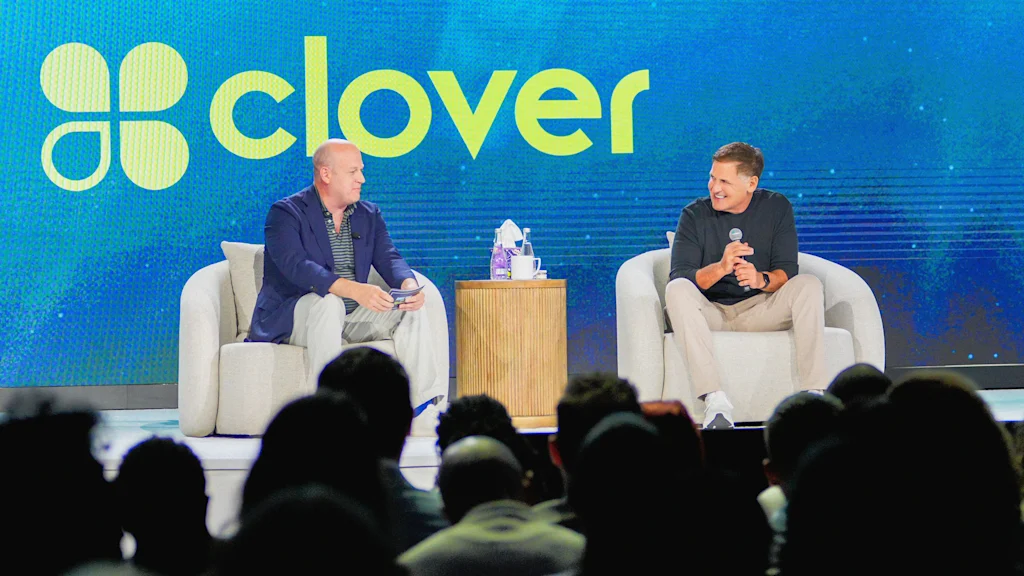
Over the course of 15 seasons, the Sharks on ABC’s Shark Tank have invested more than $200 million in the companies that have pitched them. But Mark Cuban, who sat on that investor panel almost every season before leaving the show earlier this year, says the smartest founders focus on sweat equity, rather than hunting for investors.
Speaking at the Clover x Shark Tank Summit in Las Vegas Monday, Cuban listed the strengths of starting a business without any sort of external capital.
“The only reason I’m a billionaire is because I started off bootstrapping,” he told Inc.’s editor-in-chief Mike Hofman. “So many people get caught up [thinking] ‘I have to raise money.’ No, you have to get customers. And if you’re able to get customers, you’re able to grow your business. And if you’re able to grow your business, even if it’s slower, then you’re able to own your business.”
Few people can truly say they own their own business, Mark Cuban said. There’s a romanticism that goes with attracting outside investors—but that’s not always the best direction for the company.
Featured Video
An Inc.com Featured Presentation
“I think we have the Silicon Valley ethos too much,” he said. “We’re got to raise money first.” A smarter move, he says, is to build the business first.
By focusing on that, you avoid putting yourself in the position of having to decide between the lesser of several potentially bad funding offers that might require you to give up a significant ownership stake. The more you’re able to build the company organically, the better your position will be when the time to raise money finally arrives.
“If you come on Shark Tank and you have $100,000 in sales, Kevin’s going to make you an offer that says, ‘I want 75 percent of the company and a 97 percent royalty.’ And Lori’s going to jump in and say, ‘Oh, that’s crazy, I’ll take 60 percent of your company, but only a 2 percent royalty.’ You don’t want to be in that position … The longer you can hold out before you raise money, the richer you are going to be,” said Cuban.
When the time does come to raise money, he said, there’s nothing wrong with avoiding venture capital or even Shark Tank Sharks if you can get it in other ways, whether that’s crowdfunding, grants, or some other nontraditional means.
Any chance you have to get nondilutive funding is one you should take, he said. However, as you accept that money, think about how you’re going to pay those people back.
“Whatever source of funding you get—investors, equity, crowdfunding, whatever—remember, it is an obligation,” said Cuban. “Raising money is not an accomplishment, it’s an obligation.”
That’s a lesson Mark Cuban learned personally right before the turn of the century.
He and his partner Todd Wagner started a company called Broadcast.com, which he says was the first streaming company. It IPO’d in 1998 and immediately set a record for first day growth.
The stock opened at $18 per share and spiked within seconds to $72. It closed on that first day at $63.75.
“I was freaked out in two ways,” he said. “One: Shoot, I’m rich! Two: Somebody paid $72 for our stock and now it’s $63. We need to get to work and make sure she makes money.”
The way to do that, he says, is to focus not on sales, but cashflow. The topline is the least important number. Focus on things like margins and keeping costs low.
“The #1 trap that startup entrepreneurs fall into: They’ve just got to get to $1 million in sales,” he said. “That’s the stupidest number in the history of stupid numbers. Tell me you want to get to $1 million in cash and you started with a lot less, and I’m like you’re my kind of entrepreneur.”



